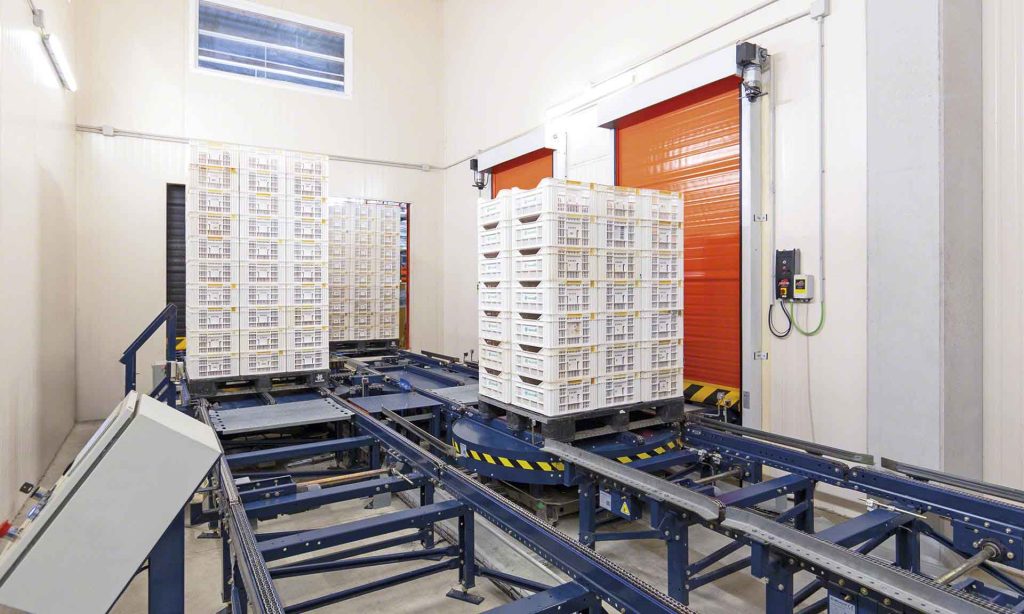Maintaining perishable food items, pharmaceutical products, and others at the correct temperatures will prolong the shelf-life while increasing profitability. It can also safeguard your customers from food poisoning or other dangers to their health. The process of constructing and maintaining a cold storage space or truck in order to satisfy these needs can be costly and time-consuming.
The biological samples, such as tissues or blood cells DNA, RNA, as well as vaccines require specific cold storage conditions that preserve their integrity and strength.
Refrigerated Warehouses vs Freezers
Two main kinds of cold storage warehouses are refrigerated as well as frozen. Refrigerated warehouses, also known as chill stores, maintain temperatures between 2 and 8 degrees Celsius to protect perishable goods from bacterial growth and prevent loss of cold. They are the best place to store fresh produce and dairy products.
Warehouses that are frozen, on the other hand, maintain sub-zero temperatures, typically below -18 and -25 degrees Celsius they are ideal to store seafood, meats, and frozen desserts. Frozen warehouses can also store temperature sensitive medicines like vaccines, vaccines and blood plasma.

A lot of businesses choose to outsource their cold storage requirements to third party logistics providers. A large restaurant chain may use their cold storage facilities to hold the weekly delivery of all its food products temporarily until it’s time to deliver them to each individual location.
Costs of cold warehouses depend on factors like area, size, time of storage and other requirements for services. It’s essential to choose an establishment that’s close to major transportation hubs, which will simplify logistics and cut down travel times.
Cold Storage Facilities for Perishable Goods
Cold storage facilities allow businesses their ability to increase the shelf life of perishable merchandise and reduce the loss of inventory. They house and transport temperature-sensitive products, such as food, chemicals, pharmaceuticals, cosmetics and other commodities.
Cold stores make sure that perishable goods are kept healthy, safe, and fresh to consumers. They can also be a one-stop solution to manage wholesale items as well as making it easier to monitor stocks.
To prevent contamination and product spoilage, cold storage warehouses must adhere to stringent standards of safety. They must have fire-proof security measures, emergency power backup systems such as security cameras and locked access for unauthorized personnel. The kho lanh mini gia re should also have several automated systems for streamlining operations and enhancing effectiveness and precision. These include automated storage and retrieval equipment, robotic palletizing and sorting technologies. Additionally, cold stores should have a low energy consumption and utilize environmentally friendly technologies such as wind turbines and solar panels to reduce environmental impacts and lower operating expenses. The store should also consider blockchain technology for improved visibility, traceability, and accountability for stakeholders.
Temperature Sensitive Goods Storage
Certain medicines need a certain atmosphere for storage and shipping It is essential that this air be maintained even when products are stored at temperature that is not ambient. The medicines that aren’t treated with the proper treatment can suffer either in terms of effectiveness or quality they can be detrimental to their efficiency and even their safety after they arrive at the patients.
Temperature controlled warehouses can help prevent these issues by providing insulated and temperature-controlled areas for perishable goods, including pharmaceuticals. In addition, these facilities are equipped with alarms that inform staff when the item gets into the danger zone so they can take corrective actions immediately before it’s too far.
When shipments are time-sensitive that require a time-sensitive delivery, the cold chain logistics process could involve a number of legs (and transport methods). For this reason, it’s vital that every facility involved with the process are equipped with controls on temperature as well. It ensures that products remain cool, safe and intact throughout their trip from the factory to the final customer. Theft or damage can also wreak havoc on temperature-sensitive goods, so proper security and insurance are crucial.
Benefits of Refrigerated Warehouses and Freezers
The medical and food industries depend on cold storage facilities for preserving the freshness, flavour, and the safety of their products. They have sophisticated refrigeration equipment that can create precise temperature levels and control. These warehouses also offer value-added options like consolidation and repackaging so that their clients can save shipping expenses.
Food waste is a huge issue in the industry of food. Fortunately, cold storage warehouses could help cut down on the quantity of food thrown away in order to manage inventory on a first-in, one-out (FIFO) base.
In the case of a warehouse, for instance, one with automated cranes can store greater quantities of food on the same amount of space as the manual operation of a facility. This means less energy is used per square foot, and it’s much simpler to monitor stocks. This is an excellent method to reduce food costs and reduce consumption in the business world when profit margins are limited. Another benefit is a smaller space footprint for buildings since cold storage warehouses can be located closer to produce markets or processing facilities for food.
